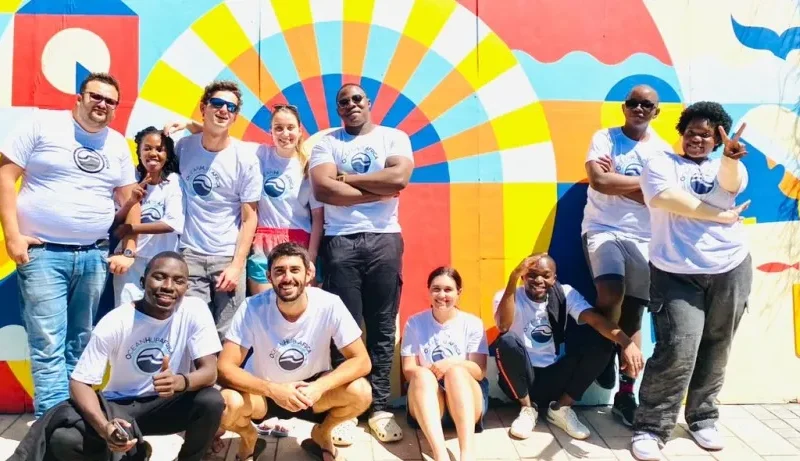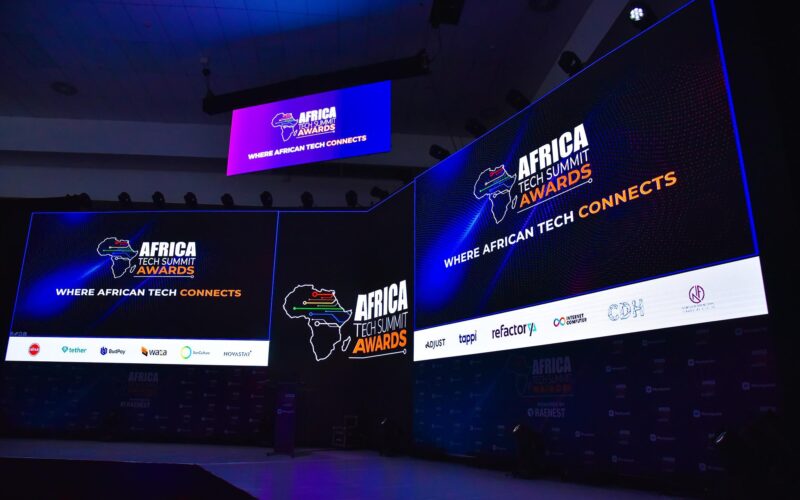Opeyemi Kufoniyi is the Director of Product at Smile ID, Africa’s leading KYC and identity verification provider. With over a decade of experience spanning product management, business analysis, and operations, he has been instrumental in shaping identity verification solutions that help businesses scale securely across the continent.
Beyond his work in identity and compliance, Opeyemi has also led product and operational strategy in the fintech and agritech sectors, leveraging technology to drive efficiency and innovation. With a strong track record in building and optimizing digital solutions, he combines strategic leadership with deep technical expertise to deliver impactful, user-centric products.
Passionate about digital identity, financial inclusion, and regulatory technology, Opeyemi continues to drive advancements at the intersection of technology and trust.
In this conversation, Ope shared insights into his career journey, he also discussed Smile ID’s latest fraud report, highlighting the increasing sophistication of fraud tactics and the need for stronger industry collaboration between businesses and regulators.
Can you share your professional background, and what led you to your current role as the director of product at Smile ID?
So I think for that, I would start from my university days. I’m an electrical engineer by training, specializing in control systems. While in school, my friends and I tried building a gaming company, but we lacked business knowledge. We were just a bunch of nerds writing mobile gaming code, so it never really went anywhere, although we wrote a bunch of games.
After school, I was really determined to learn “business”. I started my career over a decade ago at a venture-building firm where I worked across different sectors, including aviation, power, education, and fintech. I eventually grew into a business operations manager overseeing multiple businesses. One experience that really stuck with me was leading the Technology Office for Africa’s largest social microloan program. There, I was exposed first-hand to the impact of financial inclusion.
Later, after leaving the firm, I co-founded an agri-tech startup. Across both the program and the startup, a key challenge was establishing trust. In the case of the program, the challenge was preventing fraud and ensuring that the capital set aside for beneficiaries reached as many as possible without issues like loan stacking fraud. For the agri-tech startup, it was about ensuring transparency in supply chains—making sure that fertilizer supplied by the farmer was given to the right farmer and not sidelined by an agent. This challenge led me to Smile ID, where I now help solve identity and trust issues at scale.
What are your primary responsibilities at Smile ID, and how do they align with the company?
Smile ID, being a tech company, has product at its core. I lead the product team, and some of my key responsibilities include:
- Product Strategy Development: I lead the execution of our product strategy and ensure alignment with Smile ID’s mission to make it easy for anyone to prove their identity online.
- Product Development: I oversee the entire product development life cycle, from ideation to launch, ensuring timely delivery of high-quality products that meet market demands across the African continent.
- Cross-functional Collaboration: I work closely with engineering, marketing, and commercial leadership to ensure seamless product development and delivery that aligns with market needs.
- Independent Contributor Work: Beyond managerial responsibilities, I directly oversee some products within our portfolio.
Are you a coffee or tea person, or do you have another go-to productivity drink?
If you had asked me this a month ago, Mustapha, my answer would have been black coffee. I was a die-hard enthusiast. But recently, I’ve discovered the delightful world of peppermint tea with just a splash of lemon. I now kickstart my day with this refreshing brew—it feels like my morning routine has gone from a rocket launch to a spa day.
Smile ID just published the 2025 Fraud Africa Report. What inspired this report, and what are some of the most surprising findings?
We’re really proud of the 2025 Fraud Report—the team did a stellar job. As Africa’s leading identity verification provider, we recognized the urgent need to address the rapidly evolving landscape of digital identity fraud across the continent. Fraudsters are now leveraging emerging technologies like generative AI and deep fakes, posing significant threats to businesses and individuals. This pressing concern inspired us to compile the 2025 Digital Identity Fraud Report, analyzing anonymized data from over 110 million identity verification checks conducted in 2024 across Africa.
Some surprising findings from the report include:
- Authentication is riskier than registration: Fraud attempts were four times higher during authentication than at the registration stage, indicating a rise in account takeovers and identity theft.
- Regional differences in fraud trends: East Africa recorded the highest biometric and document fraud rejection rate at 27%, while Southern Africa saw a jump in fraud attempts from 9% in 2023 to 21% in 2024, partly due to presentation attacks on the South African Green Book which is been phased out for a more secure Smart ID.
- Fraud peaks at night: Most fraud occurs between 7 PM and 3 AM GMT, confirming the idea that fraudsters are most active when the digital landscape is less monitored.
- Increase in AI-driven fraud: AI-powered fraud attempts surged by 34% in 2024, with deep fake incidents increasing seven times in the last two quarters of the year.
How is AI impacting identity verification in Africa?
Advancements in AI have significantly increased biometric fraud. In 2024, biometric fraud reached an all-time high of 16%, with a notable rise in biometric spoofing. For example, in West Africa, biometric fraud rates tripled from 5% in 2023 to 15% in 2024. Fraud tactics like identity farming, insider-assisted fraud, and document forgeries are becoming more sophisticated, making it harder for traditional KYC methods to keep up. Businesses need to adopt AI-powered, multi-layered security solutions to stay ahead. Our mobile SDKs, for instance, detected fraud 68% more effectively compared to other integration options.
What gadget or tech tool can you not live without right now?
That’s an easy one—my phone. It’s incredible how powerful phones have become. Whether I need to tune out of work or get things done, my phone is my go-to device. I never go anywhere without it.
Were there any trends that stood out across different African markets?
Yes, here are some region-specific insights:
- Central Africa: Fraud rose slightly from 19% in 2023 to 22% in 2024.
- East Africa: Recorded the highest biometric and document verification fraud attempts (27%). A notable trend was fraudsters using stolen ID documents to submit mismatched selfies.
- West Africa: Saw the highest biometric fraud rates, driven by spoof attempts, which tripled to 15% in 2024 compared to previous year.
- Southern Africa: Rejection rates rose from 9% in 2023 to 21% in 2024, primarily due to fraud attempts targeting the soon-to-be-phased-out South African Green Book. Fraud rates for Green Book IDs were five times higher than for Smart IDs in March 2024.
What are the practical steps businesses can take today to protect themselves from identity fraud?
Businesses can take several steps to enhance their security:
- Use multi-layered biometric verification: Combine document verification, biometric authentication, and liveness detection to prevent fraudsters from using stolen or synthetic identities.
- Collaborate with industry peers: Fraudsters operate across industries and jurisdictions, so sharing fraud intelligence with regulators, financial institutions, and ID verification providers strengthens collective security.
- Adopt global security best practices: Implement measures like whitelisting IP addresses, rotating credentials every 90 days, and regularly updating third-party libraries and SDKs.
- Implement rate limiting: Protect against accidental overuse and DDoS attacks.
- Actively monitor logs: Detect anomalies such as spikes in fraudulent attempts from a particular user or region.
- Implement SDKs for digital onboarding: SDKs are the gold standard for security, offering improved fraud detection and addressing regional challenges like network stability.
Businesses that adopt these steps can significantly reduce their vulnerability to identity fraud.
If you could give your younger self one piece of career advice, what would it be?
I’d probably tell my younger self to “do it afraid.” Early in my career, I avoided opportunities that made me uncomfortable. I preferred staying in the background and excelling quietly. Looking back, I now realize that embracing discomfort and facing fears head-on are essential for growth and success.
If I had stepped out of my comfort zone more often, I would have seized valuable opportunities and developed my skills more rapidly. Fear is a natural part of the learning process, and overcoming it leads to significant personal and professional development. I learned this later in my career, but I would have loved to start earlier.
Where do you see the future of digital identity in Africa in the next five years?
I want to commend the strides Africa has made in digital identity over the last few years. This momentum will only accelerate. For example, at Smile ID, we’ve conducted over 200 million verifications in seven years—more than half of that (110 million) in 2024 alone.
The adoption of digital identity verification is rapidly increasing. In the next five years, I anticipate more African countries—like Nigeria, South Africa, and Kenya—implementing comprehensive digital identity systems that leverage mobile technology for secure and inclusive access to services. Currently, many of these systems focus on elections and financial services, but I expect expansion into healthcare, social welfare, and education.
AI will play a significant role in this evolution. AI-driven identity verification will become more common, enhancing fraud detection and automating manual verification processes. We will also see stronger collaboration among policymakers, businesses, and verification providers, leading to improved regulations and better security in the digital identity ecosystem. Additionally, biometric verification will become the standard for identity protection, especially in KYC and multi-factor authentication.
The report called for stronger industry collaboration. What roles do regulators and businesses need to play to tackle identity fraud effectively?
Regulators and businesses need to work more closely to combat identity fraud. One challenge is that businesses are often reluctant to share information. However, deeper collaboration is necessary—where regulators set best practices, businesses exchange insights, and together they develop policies that enhance digital security while maintaining accessibility.
Regulators should establish clear identity verification standards across industries, enforce data protection laws, and create secure platforms for information sharing. Nigeria’s banking sector already has a fraud report desk, but we need similar initiatives across industries.
Businesses must adopt stronger identity verification measures and share fraud trends using regulator-supported platforms. AI-driven fraud detection should be a priority. At Smile ID, we actively engage with policymakers, financial institutions, and industry groups to push for a standardized KYC framework across Africa. We advocate for interoperable verification standards to prevent cross-border fraud, as fraudsters operate beyond a single country or jurisdiction.
What is one misconception about digital identity that you would like to correct?
One common misconception is that digital identity systems are too expensive to implement. Many assume that establishing a digital identity system is prohibitively costly. While the initial investment may seem significant, the long-term benefits far outweigh the costs.
Digital identity verification streamlines administrative processes, reduces fraud, improves service delivery, and enhances the overall user experience. Businesses benefit from faster turnaround times and scalability, making digital verification a cost-effective alternative to traditional KYC methods.
I encourage businesses to focus on the long-term advantages rather than the upfront costs. Digital identity solutions ultimately enhance security, efficiency, and customer trust.
What is the impact of fraud on the African market?
Fraud erodes trust, which is crucial for Africa’s integration into global markets. Many global players impose extra verification steps when dealing with African businesses and consumers. For example, some airlines require passengers to present the physical debit card used for booking due to concerns over fraudulent transactions from certain regions.
Fraud also leads to significant financial losses for local businesses. In 2024, numerous fraud-related cases emerged in the banking sector, resulting in millions of naira lost. Implementing advanced fraud detection measures is critical to securing Africa’s digital ecosystem.
Africa needs to establish itself as a trust-first market. Stronger identity verification practices and fraud prevention measures will boost global confidence and reduce financial losses for businesses.
After a long day, what is your favorite way to unwind?
This is an easy one—I’m a big fan of Japanese anime. After a long day, you’ll often find me watching an episode or two. Anime is an incredible form of creative expression, and the storylines can be truly captivating. Everyone should give it a try!
What book, podcast, or resource has had a lasting impact on you?
I love reading books and listening to podcasts, but the biggest influence on me has been my father’s advice: “Challenges are the proving grounds for growth.” This wisdom has shaped my approach to life and career—embracing challenges head-on is essential for personal and professional development.
It’s been nice talking to you, Ope.
It’s been a pleasure talking to you as well! Thank you.












